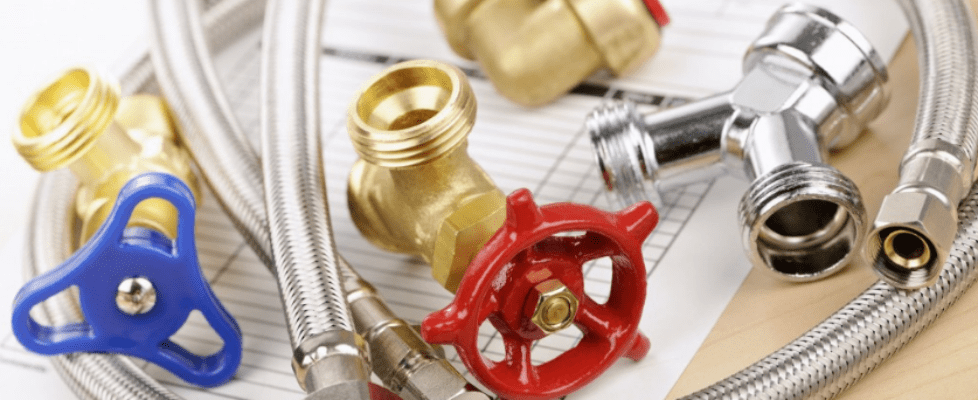The Facts About Plumbing Repair: A Comprehensive Guide
Plumbing repair is an essential service that ensures clean water supply and effective waste management within individual homes and businesses. Unlike large-scale water and sewage systems, plumbing systems are designed to serve single facilities. Maintaining and repairing these systems is critical to prevent disruptions and safeguard health and sanitation. Let’s dive into the intricacies of plumbing repair, common problems, and why professional expertise often becomes indispensable.
What is Plumbing Repair?
Plumbing repair encompasses diagnosing, fixing, and maintaining pipes, fixtures, and systems that manage water flow and waste disposal. These repairs range from minor fixes, like unclogging a drain, to more complex tasks, such as replacing corroded pipes or installing new plumbing fixtures.
Key Components of Plumbing Systems:
- Pipes and Tubing: Transport water and waste efficiently.
- Fixtures: Include sinks, toilets, showers, and bathtubs that require regular upkeep.
- Specialized Equipment: Tools like wrenches, gauges, and pumps play an integral role in repairs.
Technological Advancements in Plumbing
Modern plumbing has benefited significantly from technological innovations. These advancements have simplified complex tasks, allowing for quicker and more accurate diagnostics and repairs.
Innovative Tools and Techniques:
- Video Camera Inspections: Detect blockages and damage in hard-to-reach areas of the system.
- Water Softeners: Reduce mineral buildup that can clog pipes.
- Control Systems and Gauges: Ensure precise management of water pressure and temperature.
- Heat Exchangers and Pumps: Improve the efficiency of water heating systems.
These technologies enable plumbers to address issues more effectively, saving both time and money.
Common Plumbing Problems and Their Solutions
1. Toilet Issues
Toilets are prone to several common issues, many of which are straightforward to fix:
- Clogs: Often caused by material buildup in pipelines, clogs can lead to slow drainage or overflowing. Using a plunger or drain auger is the first line of defense.
- Running Toilets: A defective flapper can cause water to run continuously, wasting gallons of water. Replacing the flapper usually resolves this issue.
Pro Tip: Persistent toilet problems may indicate a larger issue with the sewer line. Consult a professional plumber for advanced diagnostics.
2. Kitchen Fixture Problems
The kitchen is another hotspot for plumbing issues.
- Low Water Pressure: Caused by clogged aerators or pipe leaks, this can usually be fixed by cleaning or replacing the affected components.
- Fluctuating Water Temperatures: Often a sign of water heater issues.
- Clogged Sinks: Build-up of grease, food particles, or debris requires thorough cleaning or the use of a plumbing snake.
3. Water Heater Malfunctions
Water heaters can encounter a range of problems, such as:
- No Hot Water: Could result from a failed heating element or thermostat.
- Leaks: May indicate that the heater needs replacement.
- Sediment Build-Up: Regular flushing of the tank can prevent this issue.
4. Bathroom Plumbing Problems
The bathroom’s plumbing system is exposed to frequent use, making it vulnerable to several problems:
- Clogged Drains: Hair, soap scum, and debris are common culprits.
- Leaky Faucets and Showerheads: Usually due to worn-out washers or seals.
- Blocked Showerheads: Mineral deposits can be cleared with vinegar or a descaling solution.
Pro Tip: Regular cleaning and maintenance can prevent most bathroom plumbing issues from escalating.
5. Faucet Failures
Faucet problems, though less frequent, can cause significant inconvenience.
- Common faucet types include ball, cartridge, disc, and compression.
- Issues like dripping or reduced flow often require replacing internal components.
When to Call a Professional Plumber
While many plumbing issues can be addressed with DIY methods, certain situations warrant professional intervention:
- Gas Leaks: Always a serious hazard requiring immediate expert attention.
- Pipe Corrosion: Replacing corroded pipes is a task best left to trained professionals.
- Major Blockages: Persistent clogs may indicate damage deeper within the system.
- Flooding: Requires quick action to prevent structural damage and mold growth.
Pro Tip: Look for licensed plumbers with experience in the specific problem you’re facing.
Maintenance Tips to Prevent Plumbing Problems
- Regular Inspections: Periodically check pipes, fixtures, and valves for signs of wear or leaks.
- Clean Drains Weekly: Prevent blockages by using drain strainers and avoiding pouring grease or debris down the sink.
- Replace Old Fixtures: Upgrade outdated components to improve efficiency and reduce the risk of failures.
- Winterize Your Pipes: Insulate exposed pipes during cold seasons to prevent freezing and bursting.
Conclusion
Plumbing repair is a vital aspect of maintaining a functional and efficient home. From minor fixes to major overhauls, understanding the basics of plumbing issues and their solutions can save you time, money, and stress.
When faced with complex problems, don’t hesitate to call a professional plumber. Their expertise and use of modern technology ensure that your plumbing system remains in top condition. Regular maintenance and timely repairs will keep your water flowing smoothly, safeguarding both your home and your peace of mind.
Super Brothers Plumbing Heating and Air offers reliable plumbing repair services. Whether it’s a simple faucet replacement or a full-scale pipe overhaul, our team is equipped to handle it all with precision and care. Contact us today for expert solutions tailored to your needs.


